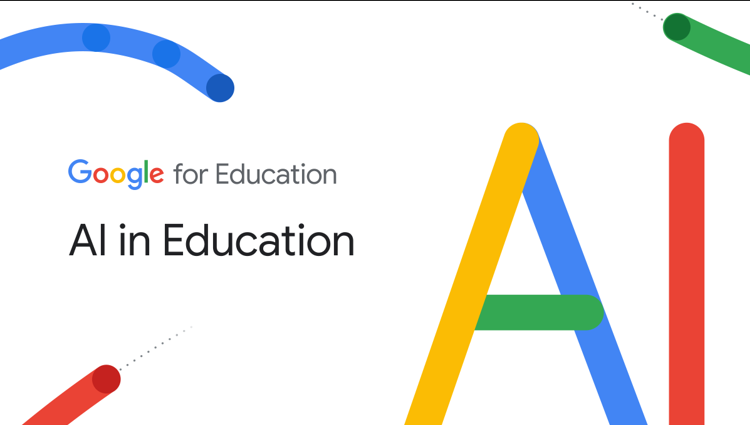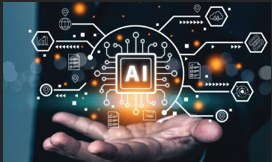A $1-billion investment is thus set aside by Google to transform AI learning in US higher education.
For three years, the tech giant will provide funding for tools and give access to its Gemini AI chatbot.
The initiative is targeted at those students of every accredited non-profit college in the US.
More than 100 universities have already signed up.
It is intended to help both the students and the institutions to move toward an AI-based future.
This investment also merges access into AI learning pathways, cloud computing credits, and certification programs.
It is part of a series of actions by Google toward preparing the next generation of “AI natives.”
The advent of AI has changed jobs and learning, from which companies have thus started taking matters into their hands and shaping education.
Google’s commitment thus tilts with that of Microsoft and Amazon.

What Will Students Get for Free?
Every student who enrolls in a nonprofit college in the United States will receive a 12-month subscription to Gemini Advanced.
Gemini was running on Gemini 2.5 Pro, high-level generative AI capabilities.
Students will be provided with chatbot access, alongside free access to AI learning modules and self-paced courses.
They can also pursue Google Career Certificates for training in AI and digital job skills.
These include data analytics, IT support, machine learning, and prompt engineering.
Cloud credits are to be used for individual project work for class assignments.
Google’s goal is for AI education to be accessible, practical, and career-oriented.
The offer reflects a growing interest in bringing generative AI into everyday learning tools.
Hence, students use AI not only to complete assignments but also to delve into creative and technical realms.
How Are Colleges Benefiting from the Initiative?
Google’s investment helps colleges to update curricula and infrastructures to conduct AI training.
The institutions shall be provided with funding, free toolkits, and scalably developed faculty training resources.
Cloud credits enhance research and teaching in data science, computer science, and engineering disciplines.
Through a partnership with the American Association of Community Colleges and the National Education Equity Lab,
Google strives for the wide reach.
Many of the community colleges that provide such programs do not have access to the cutting-edge tools in AI.
This initiative creates opportunities in underserved schools and for minority-serving institutions.
Faculty will also be trained to apply AI technology responsibly in their courses.
Google’s position has been that all AI usage has to be ethical.
What is Guided Learning and How Does it Work?
A key aspect of the program is the Guided Learning mode.
It allows students to learn through guided steps instead of being directly given an answer.
The AI suggests ideas, shows visual aids, and asks pertinent follow-up questions to help the student gain insight.
Designed in consultation with members of the education community, as well as cognitive scientists, this tool for learning.
Guided Learning serves as a prompt to actually think about a problem, the opposite of traditional AIs, which simply perform the task.
It actually helps with understanding, especially in STEM subjects, coding problems, and research-oriented learning.
Students talk with the chatbot as they probe a topic, check an answer, or learn a new skill.
The intent is to assist students in becoming independent and critical-thinking individuals.
Is This the Future of AI-Native Education?
Google’s strategy aims to create students who are AI natives — workers conversant with the emerging digital tools.
Those with AI training would gain the advantage once the job markets take a turning point.
AI is already being used in sectors like healthcare, finance, logistics, and media.
Students that are well-versed with Gemini and similar applications can easily transition into these sectors.
This could transform how colleges prepare students for career pathways.
Courses may very well turn more based on projects and tech-oriented and adaptable.
With the availability of Google Career Certificates beside college courses,
students graduate with an academic degree and recognition in their respective fields.
This juxtaposition gives them a lot of flexibility in mapping their journey,
making them even more desirable to employers looking for graduates that are job-ready.

Google aims to shape AI-native students
Google’s Program Has Wide Reach and Ambitious Goals
The commitment to $1 billion is not just an investment in tools; it is a commitment toward systemic transformation.
Google is setting up training and support in AI for any eligible non-profit college in the US.
More than 100 institutions have already signed up, including those for underrepresented groups.
Google aims to reach millions of students across the country by the end of the three years.
Career relevance sits high in goal setting.
The program is designed to link learning directly with labor market demand.
AI skills, once scarcely found, are now standards needed in every sector.
At the base of this transformation are Google Cloud Platform and Gemini Suite.
Being free will enable students to try, explore, and innovate with all the resources.
Also Read: Zuckerberg’s $250M Offer Wins Over AI Prodigy Matt Deitke
Final Thoughts
The pledge of $1 billion will be the watershed in education technology.
By placing free learning, career pathways, and AI together, this generates empowerment for learners and their institutions.
This is not about using AI- It is about having an AI fluency: preparing learners with skills needed to adapt, inquire and shape the AI-powered world.
It is truly a complete offering that is cutting edge, thanks to Guided Learning, cloud credits, and free access to Gemini.
The positioning of the investment indicates a sustained impact, academically as well as economically.
Google is taking a decisive lead in the battle of future workforce upskilling.

